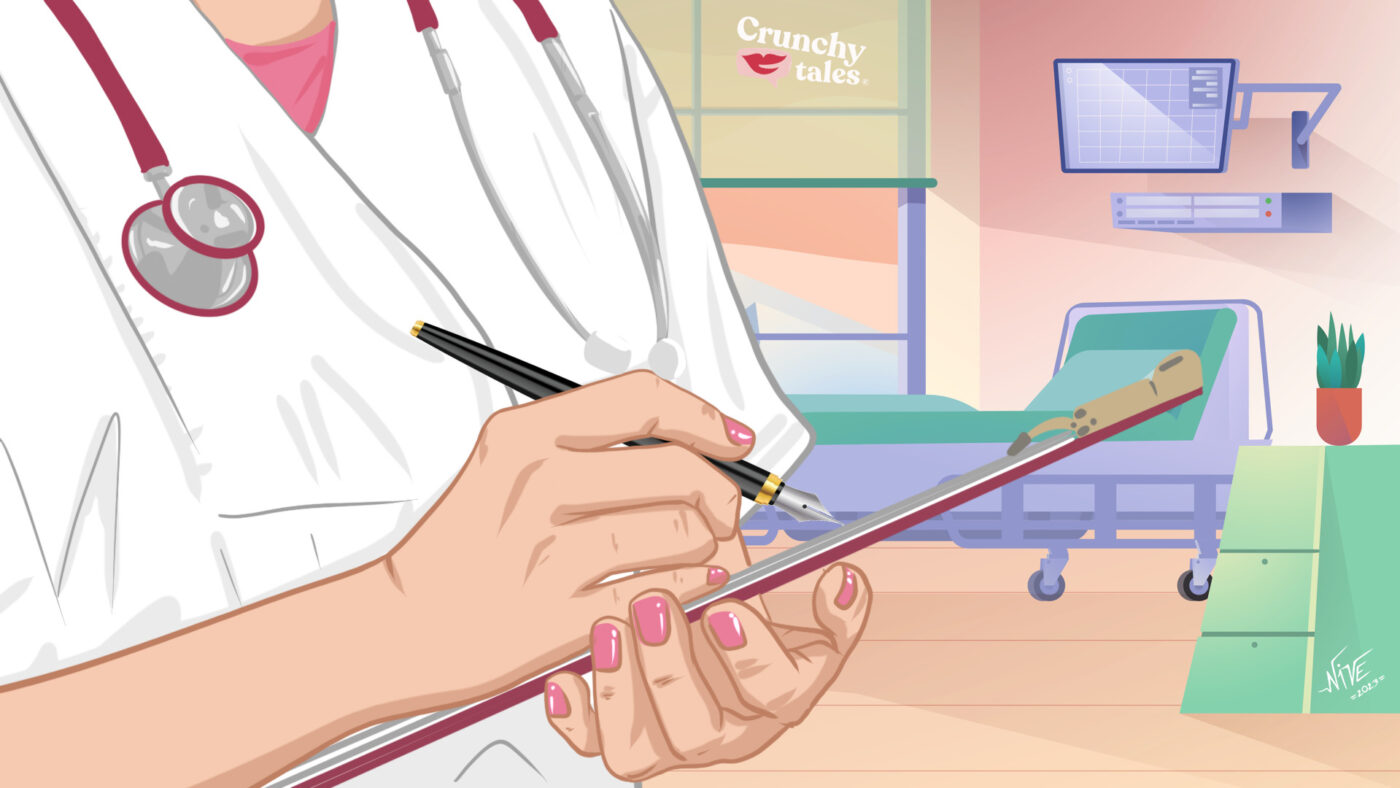The Key Gynaecologist Exams Women Over 50 Should Have Post Summer
There’s something about turning 50 for women that can be a blessing or a curse. The hormonal changes take front and centre stage for most of us as our ovaries stop producing estrogen, bringing new and disruptive symptoms, as we enter the next chapter of life called menopause.
It is around this half-of-century landmark that we must pay attention to our short- and long-term health needs and catch up on tests and exams we have left by the wayside in our 40s. It’s a time when we must prioritize our gynaecological and overall health by undergoing certain essential exams and screenings. As women age, the risk for certain health conditions starts to increase including diabetes, high blood pressure, high cholesterol, and heart disease.
It can never be said enough that heart disease is the most common cause of death among women throughout the world, affecting 1 in 4 women. So, while women are transitioning into menopause, hot flashes, night sweats, and insomnia, are not the only concerns that should grab your attention.
While staying on top of essential gynecologic exams and screening should always be at the forefront, overall health maintenance tests, should also be considered to detect and address potential issues to come. For many women, the Gynecologist is the only doctor they see until she/he advises differently.
With that in mind, here is my go-to list of tests and examinations recommended for women over 50.
Essential gynaecologist exams for women over 50
Regular gynaecologist exams are an essential part of proactive healthcare. By understanding the purpose and significance of the following, you can prioritize your health and address any potential health issues early on.
Pap Smear and HPV testing
Pap smear and HPV testing need to continue after 50 years. If you are 50-65 years old you should get a pap test every 3 years, or a pap test and HPV or “co-testing”, every 5 years or have an HPV test alone every 5 years. If you are older than 65 years you do not need screening if you do not have a history of cervical pap abnormalities and, either 3 negative Pap tests in a row, or 2 negative HPV co-test results in a row, within the past 10 years.
Mammogram screening
Mammogram screening for women over 50 should occur every one to two years to detect any changes in breast tissue.
If you have a family history of breast cancer-a mother or sister with breast cancer, dense breasts, eating a diet high in red meat, consuming 2 or more alcoholic beverages/day or have a high BMI over 30 you may need yearly mammograms. Remember early detection of breast cancer saves lives.
Pelvic and breast exams
Pelvic and breast exams should continue annually. There are conditions where symptoms may be subtle such as certain sexually transmitted infections (STIs), chlamydia, urinary tract infections, bacterial infections and ovarian cysts felt on pelvic exam. Breast tenderness or cysts can also be diagnosed on a breast exam.
Meeting with your ObGyn yearly gives a woman the opportunity to discuss other not-to-comfortable topics such as pain with intercourse, depression or even domestic abuse. For women over 50, a pelvic exam also includes a rectal exam which can detect microscopic blood in the stool which can help diagnose hemorrhoids, intestinal polyps or cancer.
Bone Density Screening
Bone density screening for osteoporosis begins at 65 years old, occurring every 2 years thereafter. Women with a history of a prior fracture as an adult, a family history of osteoporosis, Caucasian, smoking, low body weight or BMI, poor nutrition, smoking, premature ovarian failure, alcoholism inadequate physical activity, and certain medications are associated with an increased risk for osteoporosis and should be screened as early as 50. Discuss your risk factors with your healthcare provider.
STI Screening
STI screening should continue for single people yearly or between new partners for sexually transmitted infections (STIs), including chlamydia and gonorrhoea. HIV and Syphilis (RPR) testing needs to be done yearly.
Single women aged 50 to 59 years are a new high-risk group prone to STIs. For many of these women who are newly separated, divorced or widowed and are just getting out into the dating world again, the idea of having their partner use condoms or having them screened for STIs is not part of the conversation prior to having sex. Safe sex means condom use during vaginal or anal intercourse and oral sex (during which dental dams are used to protect the throat from HPV). And if there isn’t a dental dam in grabbing distance, plastic wrap or a cut condom will do the trick.
Discussion of Menopause and Hormone Replacement Therapy
Menopause is a time when your ovaries stop producing estrogen and your female hormones become completely depleted. Once you stop having your period for one year you are officially in menopause. The average age at which a woman enters menopause is 51 years old but menopausal symptoms can start in your 40 when hormonal fluctuations begin.
During this time there are hormonal, physical, and psychological changes happening that are completely disruptive to your life, often needing medical attention. The most common symptoms of menopause include irregular periods, hot flashes, sweating, insomnia, depression, anxiety, feeling apprehensive, weight gain or loss, fatigue, poor concentration, memory loss, vaginal dryness and heart palpitations.
All of these disruptive symptoms affect your quality of life and can be improved with simple lifestyle modifications, medications specifically treating each symptom and hormone replacement therapy. The main indication for using hormonal replacement therapy is in symptomatic women for relief of any disruptive symptoms including hot flashes, insomnia or any other adverse symptom affecting a woman’s quality of life. Treating the symptoms of menopause is individualized and often based on your philosophies for the various treatment options. Discuss the treatment choices with your healthcare provider to understand what is best for you.
Additional screenings and tests
Thyroid exams and blood testing
These exams are necessary to continue checking when over 50. Regular monitoring of thyroid function, through exams and blood testing, can identify potential problems that commonly affect women that mimic perimenopause and menopause symptoms.
Colon Cancer Screening
Colon cancer screening including a colonoscopy and stool-based test, should now begin in adults at age 45 instead of 50 which was the old guideline. People with a family or personal history of colorectal cancer, adenomatous polyps, inflammatory bowel disease, Ulcerative colitis or Crohn’s disease may need to start colon cancer screening earlier. Since 1 in 7 people have been diagnosed with colon cancer, early testing can be lifesaving.
Cholesterol and Blood Pressure Screening
High blood pressure and cholesterol levels can contribute to heart disease, which is a significant health concern for women as they age. Regular checks of blood pressure and cholesterol levels are important to monitor heart health.
Heart Health Screening
Heart disease is the leading cause of death, affecting one in four women, which is why heart health screening is so important. Have a yearly cholesterol screening/lipid profile and discuss with your healthcare provider whether an EKG or Stress Echocardiogram might also be indicated. Standard procedure at your yearly checkups ought to include checking BMI, blood pressure and fasting glucose levels to see if you are at risk for heart disease. The good news is that 80% of the causes of heart disease are preventable by watching your diet, BMI, exercise regimen, tobacco and alcohol use to name a few.
General Health Care Check-Ups
Seeing a general healthcare provider who can monitor various aspects of your health including high blood pressure, diabetes, heart health and general well-being should be a priority when over 50.
Basic lifestyle changes for midlife women
It’s important to continue (or start!) good health habits and lifestyle choices to reduce your risk of medical complications that can be catastrophic. There is no better time than committing to your health when you turn 50 years old.
Here are some basic lifestyle changes you can make immediately.
- Diet: The Mediterranean diet is the model of healthy living. By combining a well-balanced, colorful diet, consumed in a relaxed environment (no fast food!) and regular physical exercise, this diet promotes healthy aging with plant foods; nutrient-rich foods; fresh, unprocessed foods; and healthy fats.
- Exercise: Regular exercise can reduce blood pressure, reduce blood sugar levels, lowering cholesterol levels, and control body weight and body fat. A minimum of 30 minutes, 3-5 times a week, is excellent for overall good health and reducing the risk of cardiovascular deaths – aerobic exercise gets your heart working most efficiently, but even walking regularly can reduce blood pressure.
- Sleep: Nothing is more valuable than a good night’s rest – women need an average of 6 to 8 hours of sleep per night. Chronic insomnia has significant long-term consequences that include fatigue, poor cognitive abilities, depression, heart disease, and traffic-related accidents.
- Water Consumption: You need to drink at least 8 glasses of water a day. Water is vital for every system in our body, making up 60% of body weight, so constant replenishment is essential. Alcohol and caffeine should be consumed in moderation since both cause dehydration.
- Relaxation: Setting aside time for personal activities such as yoga, mindfulness, and meditation can help process daily stress, depression, and anxiety. It helps us make positive changes in our behaviours and attitudes towards our health and can improve physical and psychological symptoms.
- Vitamins: The average diet can leave gaps in our daily nutritional intake, which means we’re missing out on some vital elements required for optimal body function. To cover these nutrient gaps, taking a complete and balanced multivitamin can serve as nutritional insurance. Women over 50 need additional calcium and vitamin D for osteoporosis prevention. I would also add Omega 3 fatty acids, which are an effective and natural anti-inflammatory and supportive of a healthy heart.
Needless to say, put aside those harmful habits like cigarette smoking, excessive alcohol consumption, and overeating – they counteract these strategies for a healthy heart and healthy ageing.
It’s time to embrace and value the importance of your overall health, putting you in charge of living the most productive and healthiest life possible. Get educated, know what’s at stake and take control over your body, your ovaries and your vagina. It may even be up to you to help educate your healthcare provider. The time is now!
Like this post? Support Us or Sign up to our newsletter to get more articles like this delivered straight to your inbox!





